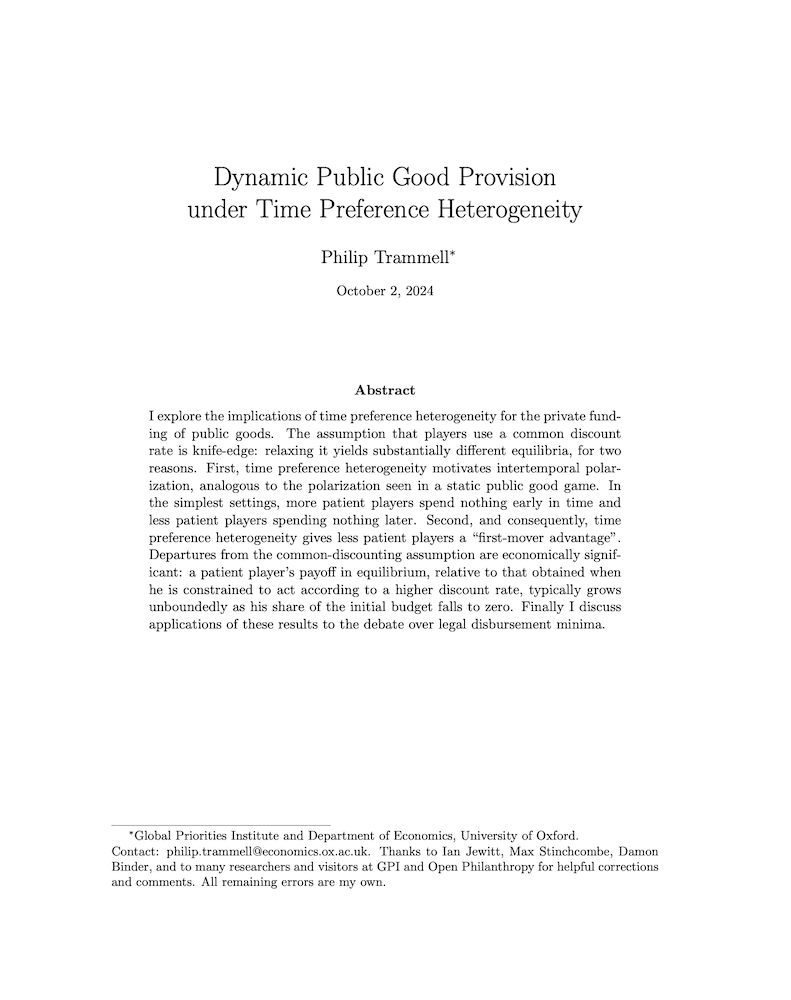Dynamic public good provision under time preference heterogeneity
Philip Trammell (Global Priorities Institute and Department of Economics, University of Oxford)
GPI Working Paper No. 9-2021
I explore the implications of time preference heterogeneity for the private funding of public goods. The assumption that players use a common discount rate is knife-edge: relaxing it yields substantially different equilibria, for two reasons. First, time preference heterogeneity motivates intertemporal polarization, analogous to the polarization seen in a static public good game. In the simplest settings, more patient players spend nothing early in time and less patient players spending nothing later. Second, and consequently, time preference heterogeneity gives less patient players a “first-mover advantage”. Departures from the common-discounting assumption are economically significant: a patient player’s payoff in equilibrium, relative to that obtained when he is constrained to act according to a higher discount rate, typically grows unboundedly as his share of the initial budget falls to zero. Finally I discuss applications of these results to the debate over legal disbursement minima.
Other working papers
Towards shutdownable agents via stochastic choice – Elliott Thornley (Global Priorities Institute, University of Oxford), Alexander Roman (New College of Florida), Christos Ziakas (Independent), Leyton Ho (Brown University), and Louis Thomson (University of Oxford)
Some worry that advanced artificial agents may resist being shut down. The Incomplete Preferences Proposal (IPP) is an idea for ensuring that does not happen. A key part of the IPP is using a novel ‘Discounted Reward for Same-Length Trajectories (DReST)’ reward function to train agents to (1) pursue goals effectively conditional on each trajectory-length (be ‘USEFUL’), and (2) choose stochastically between different trajectory-lengths (be ‘NEUTRAL’ about trajectory-lengths). In this paper, we propose…
Misjudgment Exacerbates Collective Action Problems – Joshua Lewis (New York University) et al.
In collective action problems, suboptimal collective outcomes arise from each individual optimizing their own wellbeing. Past work assumes individuals do this because they care more about themselves than others. Yet, other factors could also contribute. We examine the role of empirical beliefs. Our results suggest people underestimate individual impact on collective problems. When collective action seems worthwhile, individual action often does not, even if the expected ratio of costs to benefits is the same. …
Moral uncertainty and public justification – Jacob Barrett (Global Priorities Institute, University of Oxford) and Andreas T Schmidt (University of Groningen)
Moral uncertainty and disagreement pervade our lives. Yet we still need to make decisions and act, both in individual and political contexts. So, what should we do? The moral uncertainty approach provides a theory of what individuals morally ought to do when they are uncertain about morality…

